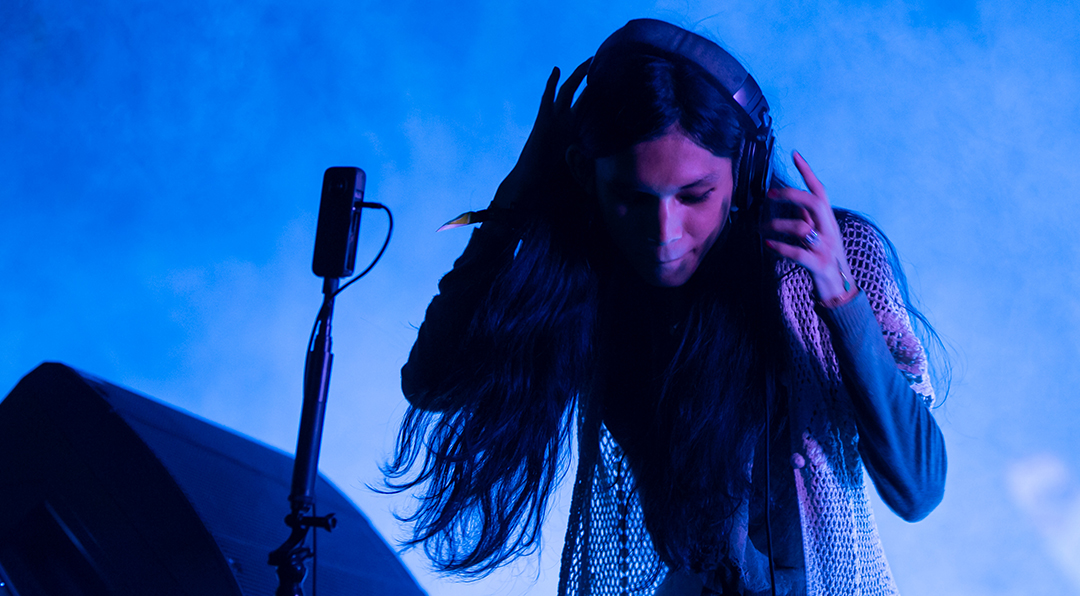This story is part of “Normal People,” a series on reclamation as a way of engaging with the world featuring local artist-advocates and community leaders.
This is the line from the poet Conchitina Cruz that has stuck with Teya Logos: “The goal of the revolutionary artist is not to point out the contradictions, but to make the contradictions felt.”
The 20-year-old militant trans lesbian musician first heard the quote from her twin, the poet and activist March A.L. This preoccupation with the Marxist concept of contradiction also grew with her finding inspiration from the writing of revolutionary women and the cultural work of the country’s national democratic movement.
Teya Logos’ hardcore club music is a product of examining the internal and external contradictions she faces as a trans Pinay. Aggressive yet tender, her music born in Quezon City has since reached dancefloors from Indonesia to Serbia. A force in the Manila electronic music scene, she was also part of the Manila Community Radio x Boiler Room budots showcase that you might have recognized her from.
Our quick chat with Teya Logos uncovers how she made it impossible for audiences to detach her politics from her music and what birthed her visceral sound.
What are the things you tend to highlight and uncover in your work?
I try to embrace all the contradictions that make me and our nation—[the struggle against] imperialism, patriarchy, capitalism, and all the ways that manifests in me personally. Namely being an impossibly angry yet impossibly tender, impossibly energetic, and always yearning ladyboy lesbian of fire in my performances. (Laughs)
I hope it naturally follows that people will feel all these contradictions, pain, and yearning for liberation with how intense and sincere I am [with] my art.
How would you describe your work process?
I think I’m really simple and casual with my work process. To get inspiration, I usually just listen to music and walk around in my room thinking of silly fantasies about how I’m gonna do the [craziest] performance ever in front of girls that have broken my heart. (Laughs)
Then, naturally, I get emotional and motivated to make music. When I make music, I’m just on my bed with my laptop and switch between my music-making software and a dumb YouTube video.
How do you take control of your work’s narrative and how it’s being framed?
Honestly, it’s often hard to do given that most electronic music is non-lyrical so it’s harder to express an explicit narrative. But I do have my ways. I’ve put a lot of effort into creating this silly and angry Third World t-girl image that I think is extremely attached to my music.
Sometimes when I perform, I feel like people love me more for my vibes and my [own] person than the actual music. (Laughs) But I also love making super explicit titles or even using very explicit samples in my music. One track that comes to mind is “F*ck The West.” My discography makes it difficult for people to detach the non-political tracks from myself as an inherently political person.
What are non-negotiables in your routine?
I’m an extremely well-organized person. I have written a journal entry and to-do list for every single day of my life since I was 12-years-old.
I can’t work in a setting other than my laptop and having my project files super neatly done. I tried to make music with an artist in Berlin. Using her laptop and being in another studio, I literally had a panic attack and had to go back home.
What keeps things fresh and exciting for you?
Any work that manages to make the contradictions of this world like being imperialized, feminized, and subject to capital felt in a new and creative way.
Someone who does this in a very refreshing and exciting way is my twin [who goes by] @magmartsa on Twitter—and I’m not just saying that because he’s my twin. (Laughs)
He has a new, very silly but very beautiful poem out where his boyfriend is a Minecraft world, a church in Ilocos, a pink exoplanet, and a commute from Manila to Cavite. He expresses queer love, growing up middle class in Manila, and this yearning for Filipino liberation in a very silly but emotional poem. I think it’s so impressive.
What do you want to manifest through your work?
Honestly, and I wish more artists could also admit this, I have no fucking idea. I’m not going to pretend like my work is politically profound or anything because ultimately I am just an angsty t-girl from Quezon City being absurdly sincere and impossibly energetic for art.
Right now, I just hope good things follow that. I hope other Third World women will find solace and inspiration in my music and I hope that it’s a good study or expression of being a Third World t-girl.
Making profound music is a struggle to be fought for and I hope in the future I can become a more concretely political artist.
Header photo by Swandi Ranadila
Follow Preen on Facebook, Instagram, Twitter, TikTok, YouTube, and Viber


